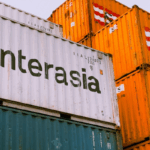Something important but little-noticed just happened in China. The country’s massive tech sector collectively and publicly fell in line with China’s government and the Communist Party’s leadership.
It has been coming. Last year Alibaba’s Jack Ma, who dared to question the wisdom of Chinese regulators, was humbled and the company forced to withdraw the planned IPO of its financial arm Ant Group on the NYSE. Ride hailing company Didi was forced to delist from the NYSE and remains under investigation over data security. A crackdown on online gaming continues, and regulators have ordered on-demand food delivery services like Meituan to cut their fees. A public campaign — “shared prosperity” — is underway to reduce disparities in wealth, with the tech sector in the crosshairs.
The denouement came as the leaders of China’s leading tech companies, gathered in January at a forum organized by the Cyberspace Administration of China (CAC), one after another pledged their loyalty. A CAC statement reported that Tencent Chairman and CEO Pony Ma said he “once again felt the care and attention of the Communist Party’s Central Committee, State Council and all levels of government have paid toward the development of the internet industry” and that “Tencent will continue to respond to the needs of the state.….” Xu Lei, the president of e-commerce giant JD.com, reportedly pledged to “take concrete actions to repay the party and the state.” The CAC report noted that business leaders must hold “correct views” of the country’s strengthened rules. A related opinion piece in People’s Daily said China should “support and guide” the healthy development of capital, prevent the “barbaric growth of capital”, and manage capital to “guide and urge companies to obey the party’s leadership”.
China’s crackdown on technology companies, which began in late 2020, combines both regulation and politics. Like all governments, China regulates business to advance its economic goals. The issues in the technology sector will be familiar in the U.S. and other countries: how companies use personal information, algorithms that make recommendations, fake engagements on social media, and business strategies that encourage addictive consumption.
The government’s move dovetails with a shift away from (slowing) GDP as the measure of economic success, toward new goals such as consumer protection. But regulation in China is also political. Everything is connected to security and the CAC’s portfolio also includes censorship. Antitrust aside, big tech companies sat on too much data and had grown too influential to be tolerated as independent sources of influence.
How these currents play out has implications for overseas businesses and governments. The line between business and the state in China was already blurred. The Party has been embedding itself in leading companies for some time. The National Security Law, reinforced by the Cybersecurity Law and National Intelligence Law, also requires companies to share data the government deems harmful, and its definition of national security is broad.
This connects to the guiding policy of Civil-Military Fusion, where private resources are aligned and harnessed with the government. The U.S. has met this with restrictions on the activities of companies such as Huawei and with the Commerce Department’s “entity list”, which limits transactions with selected Chinese companies in sensitive technological fields.
China is entrepreneurial and its technology companies, even allowing for the protection that many of them enjoy, can compete with the best. Innovation is strong, witnessed by the large number of unicorns the private sector is generating. With the stronger government hand, however, the entrepreneurial energy that has so successfully advanced China’s tech economy may be at risk.
Overseas businesses need to understand both China’s regulatory focus and its politics. The growing alignment between government and technology companies will do little to allay the concerns of U.S. and other governments regarding China’s unitary state and adds another layer of political risk for U.S. and other companies as they look to develop Chinese partnerships.











